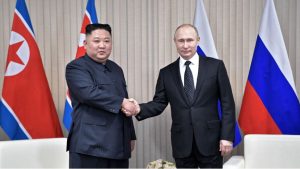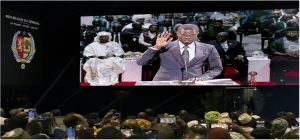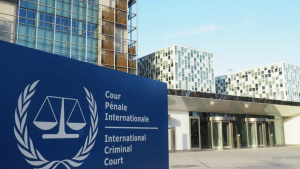By: Garrison Funk
Impunity Watch News Staff Writer
STRASBOURG, France – On Tuesday, March 19, 2024, the European Court of Human Rights (ECHR) ruled that the Russian Federation violated Articles 2, 3, and 5 of the European Convention of Human Rights in its treatment, and later expulsion, of three North Korean citizens to the Democratic People’s Republic of Korea (DPRK).
 |
While Russia has not been a member of the European Convention since September 16, 2020, the relevant events took place prior to Russia’s separation, therefore granting the ECHR jurisdiction to review the case.
Two of the individuals in the case, referred to as K.J. and C.C., were captured in Russian territorial waters and convicted of illegal fishing in 2019, and sentenced to serve two years and one month in Russian prison. The third individual, S.K., was a student studying at the Far Eastern Federal university in Vladivostok, who later applied for asylum in 2020.
After finishing their prison terms, K.J. and C.C. were both detained for two more years pending expulsion to the DPRK, before finally being released again in 2022. In particular, the ECHR noted that Russian authorities took no steps to verify the reason for their detention. Additionally, foreign nationals detained in Russia pending an expulsion are unable to have their detention reviewed by Russian courts, thereby finding violations of Article 5 § 1 and Article 5 § 4 of the Convention.
Following S.K.’s asylum application in 2020, he was detained by Russian police before being handed over to DPRK consular staff by the Russian Federal Security Service. The same day, the ECHR issued an interim ruling barring the Russian government from expelling S.K. However, S.K. has not been heard from since then. Because of the high risk of torture and failure of the Russian court system to provide an adequate remedy to detainees, the ECHR found that this expulsion constituted violations of Article 2 (right to life) and Article 3 (prohibition of torture), as it is presumed S.K. was abducted.
This is not the first instance of North Korean citizens attempting to gain refuge in Russia. Many North Koreans study in Vladivostok, often under the watchful eye of DPRK surveillance, and some attempt to escape to pursue their freedom. However, Russian security forces often assist the DPRK in the return of its citizens despite repeated admonishment from the ECHR and international community. Only a small fraction of the hundreds of North Korean refugees had their applications accepted.
For more information, please see:
ECHR – Missing Student Risks Torture if Returned to North Korea – Mar. 19, 2024
ECHR – Judgment Concerning the Russian Federation – Mar. 19, 2024
Human Rights Watch – North Koreans Face Repatriation From Russia – Feb. 17, 2022
Crossing Borders – Why North Koreans Don’t Escape to Russia Instead of China – Oct. 16, 2021
Reuters – Russia Wants North Korea’s Money, Not Its Refugees – Jan. 25, 2017



